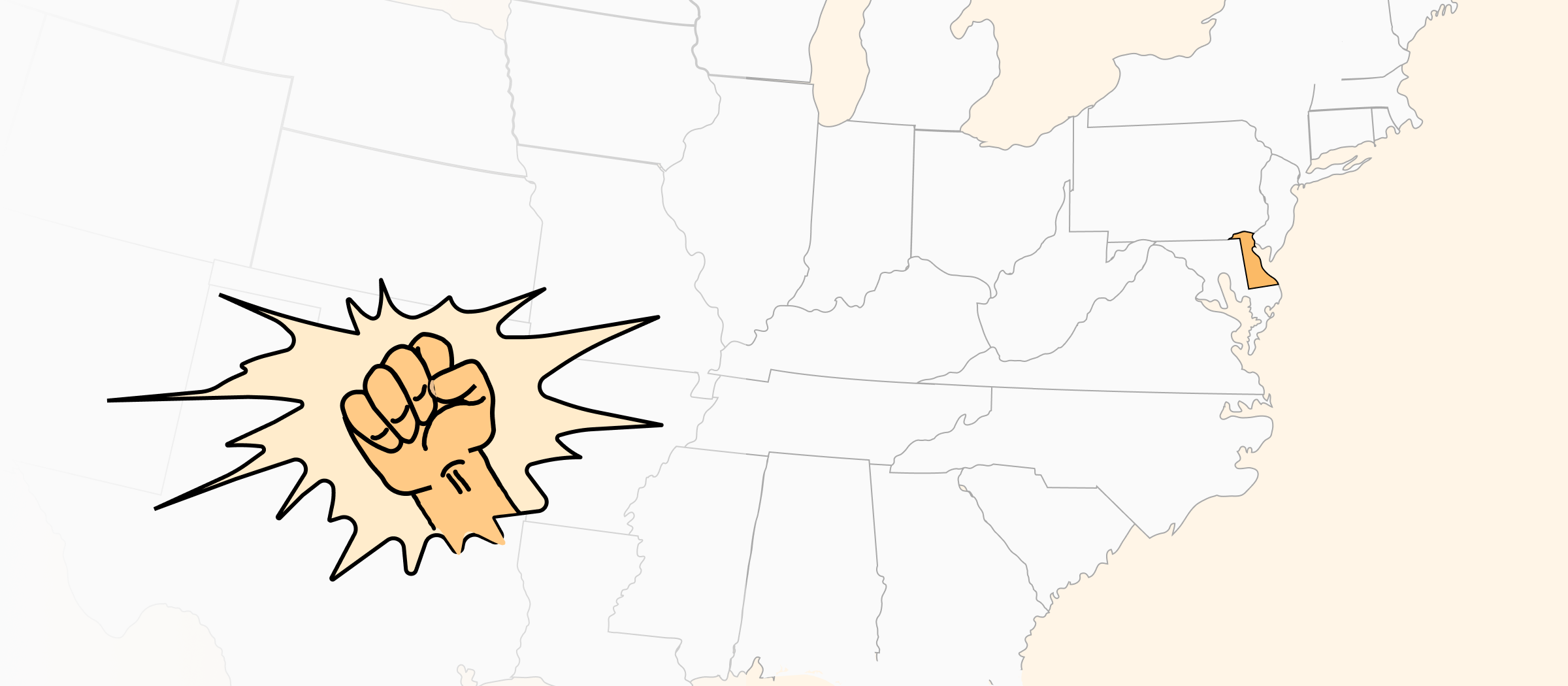| Tenant Protected Actions |
|
| Landlord Retaliatory Actions |
|
| Penalties for Retaliation |
|
When Is It Illegal for Landlords to Retaliate in Delaware?
It’s illegal for Delaware landlords to retaliate with raised rent, reduced services, or threatened eviction against tenants who have taken one of the following protected actions in the past 90 days:
- Complaining to the landlord or government about failure to maintain the property.
- Participating in a tenant organization.
- Pursuing rights or remedies given by the law or lease.
The law allows an exception when the landlord can prove a non-retaliatory, good-faith reason for the alleged retaliatory action. For example, a landlord who raises rent proportionately in response to a large increase in property tax is not retaliating, even if a tenant has recently complained about maintenance.
What Can Tenants Do in Response in Delaware?
Delaware tenants can respond to retaliation by suing for an injunction and/or triple the costs associated with the retaliation or three months’ rent (whichever is greater). The tenant can also recover court costs, but not attorney fees.
Sources
- 1 Del. Code Ann. § 5516(b) (2022)
-
“A retaliatory act is an attempt on the part of the landlord to: pursue an action for summary possession or otherwise cause the tenant to quit the rental unit involuntarily; demand an increase in rent from the tenant; or decrease services to which the tenant is entitled after: (1) The tenant has complained in good faith of a condition in or affecting the rental unit which constitutes a violation of a building, housing, sanitary or other code or ordinance to the landlord or to an authority charged with the enforcement of such code or ordinance; or (2) A state or local government authority has filed a notice or complaint of such violation of a building, housing, sanitary or other code or ordinance; or (3) The tenant has organized or is an officer of a tenant’s organization; or (4) The tenant has pursued or is pursuing any legal right or remedy arising from the tenancy.”
Source Link - 2 Del. Code Ann. § 5516(c) (2022)
-
“If the tenant proves that the landlord has instituted any of the actions set forth in subsection (b) of this section within 90 days of any complaints or act as enumerated above, such conduct shall be presumed to be a retaliatory act.”
Source Link - 3 Del. Code Ann. § 5516(d) (2022)
-
There is an extensive list of potentially allowed exceptions for good-faith landlord conduct. See Del. Code Ann. § 5516(d) (2022) – for example, it’s not retaliation to increase rent if the landlord is simply passing along substantially increased costs not associated with the tenant’s repair situation, and it’s not retaliation to start an action for possession if the landlord wants to use the premises as his own residence or else take another action that would remove the premises from a rental state for a substantial length of time.
Source Link - 4 Del. Code Ann. § 5516(e) (2022)
-
“Any tenant from whom possession of the rental unit has been sought, or who the landlord has otherwise attempted to involuntarily dispossess, in violation of this section, shall be entitled to recover 3 months’ rent or treble the damages sustained by tenant, whichever is greater, together with the cost of the suit but excluding attorneys’ fees.”
Source Link - 5 Del. Code Ann. § 5117(a) (2022)
-
“For any violation of the rental agreement or this Code, or both, by either party, the injured party shall have a right to maintain a cause of action in any court of competent civil jurisdiction.”
Source Link

